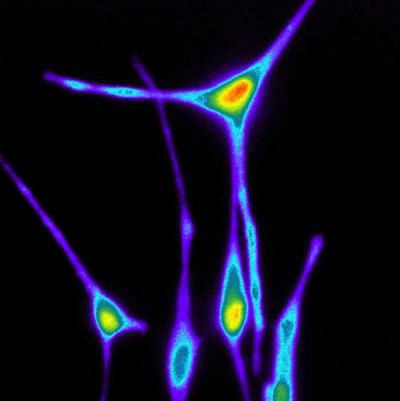Detects pigment Melanin to darken the skin
Recently, US scientists have discovered skin cells containing pigment Rhodopsin, a visual pigment, that promotes the production of Melanin skin to darken the skin when exposed to the sun.
'As soon as you are exposed to the sun, your skin immediately knows it is exposed to ultraviolet rays. The process takes place very quickly, faster than any process ever known before , 'said Elena Oancea, assistant professor at Brown University and head of research.

Light-sensitive receptors have the ability Rhodopsin
detect certain wavelengths of ultraviolet rays (Photo: Livescience)
Ultraviolet radiation on the Earth's surface consists of UVA rays and UVB rays. These two types of radiation darken the skin, destroying DNA causing skin cancer. However, UVA makes skin darker faster.
When studying melanocytes, which produce Melanin, protect the skin when exposed to ultraviolet rays, scientists found cells containing Rhodopsin, the type of pigment previously thought to be present only in retina eye.
Rhodopsin can 'see' radiation exposure to sunlight and immediately responds to skin protection by sending signals to epidermal cells that require Melanin production. Melanin will absorb ultraviolet radiation to protect the skin.
Scientists say, 1 hour after exposure to the sun, Melanin begins to accumulate and skin darkens.
The study is detailed in the latest issue of Current Biology.
- Skin color reveals nicotine dependence
- The culprit causes the skin to become discolored when exposed to sunlight
- Why do people have freckles?
- why are the forgs is green?
- Why are our skin colors different?
- Successfully created 'edible' batteries to run medical devices in the body
- Why do people have two different eye colors?
- Use sunscreen when your baby can prevent cancer later
- Decode the ability to turn the magic color of geckos
- 'Falling back' about women defying to whiten skin from ancient needles
- Why luminescent fish scales?
- How does ultraviolet light cause skin cancer?
 Green tea cleans teeth better than mouthwash?
Green tea cleans teeth better than mouthwash? Death kiss: This is why you should not let anyone kiss your baby's lips
Death kiss: This is why you should not let anyone kiss your baby's lips What is salmonellosis?
What is salmonellosis? Caution should be exercised when using aloe vera through eating and drinking
Caution should be exercised when using aloe vera through eating and drinking